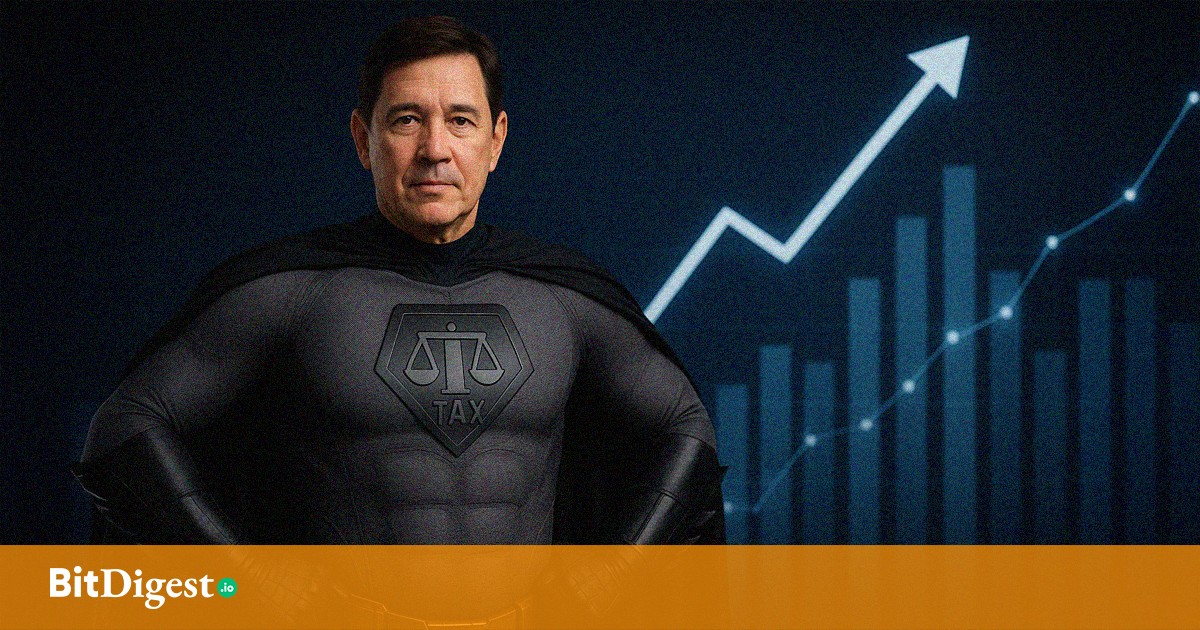The VATman Returns: Here’s Every Tax Law Ralph Recto Passed
CMEPA made it through headlines like it’s Ralph Recto’s personal comeback album. Before time deposit interest taxes and Netflix VATs, there has always been the one and only legendary “VATman.” Over the last two decades, Recto has left a visible footprint on nearly every major tax reform in the country.
From raising the VAT rate in 2005 to trimming investor costs in 2025, this running list shows the evolution of tax policy under his legislative and executive watch. What follows is a not so chronological, but relevant breakdown of the most significant tax laws authored, co-authored, or actively supported by Recto, followed by a quieter list of sector-specific, pending, or partial reforms that have also shaped his tax legacy.
Capital Markets Efficiency Promotion Act (CMEPA)
Republic Act No. 12214
Signed: May 29, 2025 | Effective: July 1, 2025
Role: Championed as Secretary of Finance
CMEPA restructured how passive income is taxed. It introduced a uniform 20% final tax on interest income and royalties, cut the stock transaction tax to 0.1%, and lowered the documentary stamp tax on share issuance. It also expanded tax incentives for long-term investors and retirement contributions (e.g., PERA). The Department of Finance projects ₱25 billion in added revenue from CMEPA over five years.
VAT on Digital Services
Republic Act No. 12023
Signed: October 2, 2024 | Effective: October 18, 2024
Role: Championed as Secretary of Finance
This law applies a 12% VAT on foreign digital service providers such as Netflix, Spotify, Google, and Adobe. It includes registration requirements and VAT remittance mechanisms for both B2C and B2B models. The Bureau of Internal Revenue expects ₱105 billion in revenue from this measure by 2029. The idea? Level the playing field for local businesses and modernize the tax base—hence the ₱619 from ₱549 fee for premium subscription.
Sin Tax Reform Act
Republic Act No. 10351
Signed: December 19, 2012
Role: Co-sponsored as Senator
This landmark reform raised excise taxes on tobacco and alcohol, channeling billions into PhilHealth and health infrastructure. It’s supposed to fund Universal Health Care and model how taxes can address inequality through access to public health.
Expanded Value-Added Tax (eVAT) Law
Republic Act No. 9337
Signed: May 24, 2005
Role: Principal author as Senator
Here’s where the “VATman” legend was born. Recto authored the eVAT law that raised VAT from 10% to 12% and expanded it to cover fuel, power, and essential services. While widely unpopular at the time, it became a fiscal cornerstone that generated over ₱100 billion in annual revenue and helped stabilize government finances during the Arroyo administration.
Tax Reform for Acceleration and Inclusion (TRAIN) Law
Republic Act No. 10963
Signed: December 19, 2017
Role: Voted in favor as Senate President Pro Tempore
Although not an author, Recto supported TRAIN during Senate deliberations. The law reduced personal income taxes for most earners, increased excise taxes on fuel and sugary beverages, and broadened the VAT base by removing some exemptions.
Additional Tax Measures: A Second-Tier Legislative Trail
Beyond the headline-making laws, Recto has contributed to or supported various other tax initiatives—some minor, some pending, but each reflecting targeted reforms in response to evolving economic realities.
Inheritance and Donor’s Tax Reform (Pending)
Recto has expressed support for further simplification of estate and donor’s taxes—particularly lowering rates, removing valuation ambiguities, and aligning deadlines with administrative reforms. These proposed changes build upon the legacy of TRAIN but remain in committee as of mid-2025.
GOCC Passive Income Standardization (2024–2025)
CMEPA included provisions supported by Recto to remove passive income exemptions enjoyed by select government-owned and controlled corporations. This move aimed to standardize tax treatment across public and private financial institutions.
Crypto Tax Provisions via CARF Alignment (In Draft)
As of 2025, Recto has backed preliminary work aligning the Philippines with the OECD’s Crypto-Asset Reporting Framework (CARF). The proposed model would impose reporting requirements and potential tax obligations on gains from crypto trading, staking, DeFi lending, and NFT sales—particularly on foreign exchanges operating in the country without registration. This is still in the policy design phase but reflects the DOF-BIR’s intent to futureproof the tax code with support from Recto’s office.
Social Media and Creator Income Tax Guidelines (In Committee)
Recto supported inter-agency policy proposals clarifying how influencers and digital content creators are taxed under existing VAT and income rules. Discussions cover thresholds for mandatory registration, advertising income sourced from foreign platforms, and local digital partnerships.
Streamlined Estate Tax Filing (Administrative Initiative, 2024)
During his term as Finance Secretary, Recto also launched backend reforms to digitize estate tax filing, simplify documentation requirements, and improve taxpayer access to payment options ahead of the estate tax amnesty’s expiration.
When wisely timed and implemented, intricate tax mechanics can serve as a nation-building tool that can pay for hospitals, roads, and schools, but regardless of how infinitesimal it seems at paper, it’s an instrument that influences the cost of living, investing, and earning for better or worse. Taxation is a double-edged sword that can advance fairness or amplify burdens, depending on its design, administration, and message.
For lawmakers like Ralph Recto, each tax law reflects that tradeoff. Whether expanding VAT in times of fiscal need or trimming transaction taxes to spur investment, every decision sits at the intersection of economics and public sentiment. Understanding these laws—not just as line items but as policy levers—helps citizens better navigate their role in shaping and sustaining a shared economy. But it doesn’t stop at discernment, the hardworking sectors will always have to ask where are all these going to—and hope that it isn’t toward someone else’s pocket.
.svg)


.svg) SHARE TO FACEBOOK
SHARE TO FACEBOOK SHARE TO TWITTER/X
SHARE TO TWITTER/X SHARE TO LINKEDIN
SHARE TO LINKEDIN SEND TO MAIL
SEND TO MAIL





.svg)


.svg)